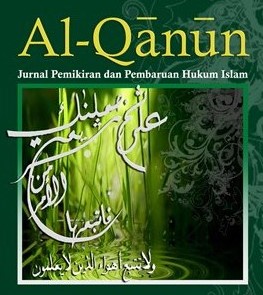Does Research Centre in Zakah Institution Can be Considered as Zakah Workers or fī Sabilillah?
DOI:
https://doi.org/10.15642/alqanun.2022.25.2.141-150Abstract
Many research centres have emerged in zakat institutions to encourage the efficiency of zakat fund management. It is a positive effort to optimize the use of zakat funds. This study aims to analyze the law on using zakat funds for research centres. To achieve this goal, this article compares the practice of IDEAS (Indonesia Development and Islamic Studies) research centre Dompet Dhuafa with the fiqh concept of eight groups of zakat recipients. This research will focus on defining the meaning of fī sabīlillah (for the cause of Allāh) and āmil (those employed for zakat) for eight groups of zakat expenditures by looking at the practice of Dompet Dhuafa in Indonesia. The results of this study indicate that research centres of zakat institutions can be considered 'amil if they have official permission from the government. However, research centres that do not have legal permits cannot be given zakat funds. This study will come with results from an Islamic perspective and suggestions for future research.
Abstrak: Dengan munculnya banyak pusat penelitian di lembaga zakat untuk mendorong efisiensi pengelolaan dana zakat, hal tersebut merupakan upaya positif untuk mengoptimalkan penggunaan dana zakat. Penelitian ini bertujuan untuk menganalisis hukum penggunaan dana zakat ke pusat penelitian. Untuk mencapai tujuan tersebut, artikel ini mencoba membandingkan praktik IDEAS (Indonesia Development and Islamic Studies) pusat penelitian Dompet Dhuafa dengan konsep fikih tentang delapan kelompok penerima zakat. Penelitian ini akan fokus pada pendefinisian makna fī sabīlillah dan āmil pada delapan kelompok penerima zakat dengan melihat praktik Dompet Dhuafa di Indonesia. Hasil penelitian ini mengindikasikan bahwa pusat penelitian lembaga zakat dapat dianggap sebagai pekerja zakat (‘amil) jika memiliki izin resmi dari pemerintah. Namun, pusat penelitian yang tidak memiliki izin hukum tidak dapat diberikan dana zakat. Studi ini akan datang dengan hasil dari perspektif Islam dan saran untuk penelitian masa depan.
Downloads
References
Abdullah, Muhammad, dan Abdul Quddus Suhaib. “The Impact of Zakat on Social life of Muslim Society.” Pakistan Journal of Islamic Research 8 (2011).
Ajijola, A.D. Zakat or Aims-Giving,. New Delhi: Adam publisher & Distributors, 2003.
Al-Bukhary. Sahih al-Bukhary. Vol. 4. Beirut: Dar al-Kutub al-’Ilmiyyah, 1992.
Al-Qardhawi, Yusuf. Fiqh al-Zakah. Selangor: Islamic Book Trust, 2011.
Al-Zuhaily, Wahbah. Al-Fqh al-Islamy wa Adillatuh. Vol. 10. Beirut: Dar al-Fikr, 1992.
Aniq, Ahmad Fathan. Zakat Discourse in Indonesia. Germany: Lambert Academic Publishing, 2011.
Bakar, Abu, Abd Aziz, Mohammad Amin Ibrahim, dan Shahizan Md Noh. Zakāt Management and Taxation. Kuala Lumpur: IBFIM, 2014.
Ghuryany, ’Abdurrahman al-. Mudawwanah al-Fiqh al-Maliky wa Adillatuh. Beirut: Muassasah al-Rayyan, 2006.
Hakim, Lukmanul, Azhar Alam, M. Mus’ab At-Thariq, Dedi Junaedi, dan M. Rizal Arsyad. “Perbandingan Program Zakat Produktif antara BAZNAS dan LAZISMU Kota Surakarta.” Al-Kharaj: Jurnal Ekonomi, Keuangan & Bisnis Syariah 4, no. 1 (2022).
Haque, M. Atiqul. Zakat and Social Security. Dhaka: Islamic Foundation Bangladesh, 1984.
Ibrahim, Sheriff Muhammad. “The Role of Zakat in Establishing Social Welfare and Economic Sustainability.” International Journal of Management and Commerce Innovations 3, no. 1 (2015).
Khin, Musthofa al-, dan Musthofa al-Bugha. Fiqh al-Manhajy. Damaskus: Dar al-Qalam, 2006.
Mustika, Setyowati, dan Alam. “Analysis of Effect of ZIS (Zakat, Infaq, and Shadaqah), Regional Domestic Products of Bruto, Regional Minimum Wage and Inflation on Levels Poverty in Indonesia 2012-2016.” Journal of Islamic Economic Laws 2, no. 2 (Juli 2019).
Qudamah, Ibn. Al-Muqni’. Beirut: Dar al-Kutub al-’Ilmiyyah, 2005.
Sadeq, Abu Al-Hasan. A Survey of The Institution of Zakah: Issues, Theories and Administration. Jeddah: Islamic Development Bank-Islamic Research and Training Institute, 1994.
Salim, Arskal. “The Influential Legacy of Dutch Islamic Policy on the Formation of Zakat (Alms) Law in Modern Indonesia.” Pacific Rim Law & Policy Journal Association 15, no. 3 (2006).
———. The Shift in Zakat Practice in Indonesia. Chiang Mai: Silkworm Books, 2008.
Saud, Mahmoud Abu. Contemporary Zakat. Ohio-USA: Zakat and Research Foundation, 1988.
Suminto, Aqib. Politik Islam Hindia Belanda. Jakarta: LP3ES, 1985.
Tim Penyusun. Outlook Zakat Indonesia 2017. Jakarta: Pusat Kajian Strategis Badan Amil Zakat Nasional (BAZNAS), 2017.
———. Profil LPZ. Jakarta: Direktorat Pemberdayaan Zakat-Direktorat Jenderal Bimbingan Masyarakat Islam-Kementrian Agama RI, 2012.
———. Standarisasi Amil Zakat di Indonesia. Jakarta: Direktorat Pemberdayaan Zakat-Direktorat Jenderal Bimbingan Masyarakat Islam-Kementrian Agama RI, 2013.
Ul-Qadri, Muhammad Tahir. Zakah & Charity Essential Questions and Explanations. London UK: Minhaj-ul-Quran Publications, 2014.
Zakiy, Suciati, dan Fauziah. “Analysis of Amil Zakat Institutions Financial Performance Prior and During Covid-19.” Journal of Islamic Economic Laws 5, no. 1 (Januari 2022).






